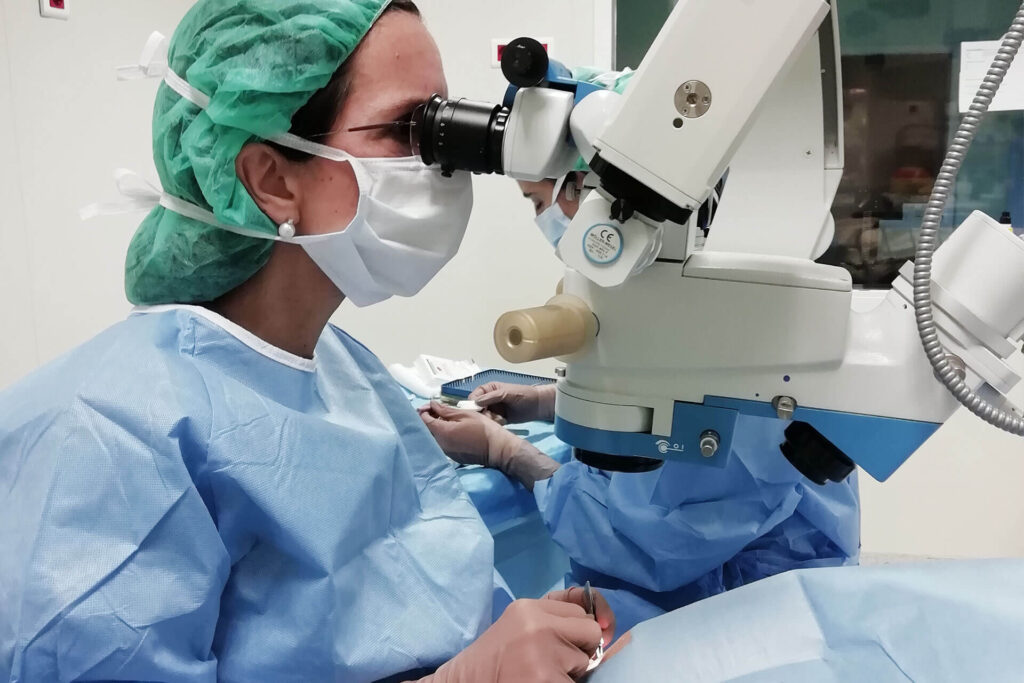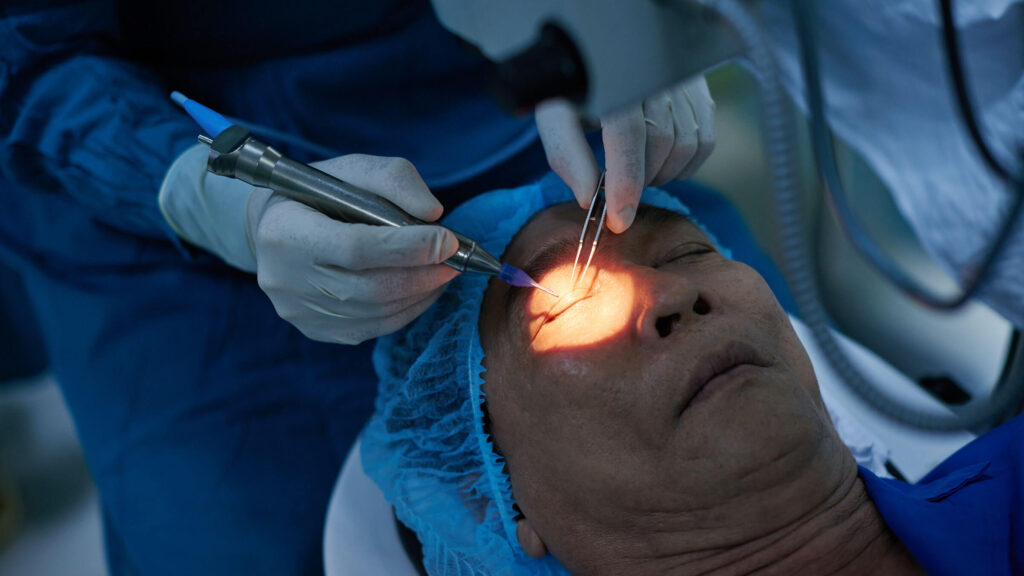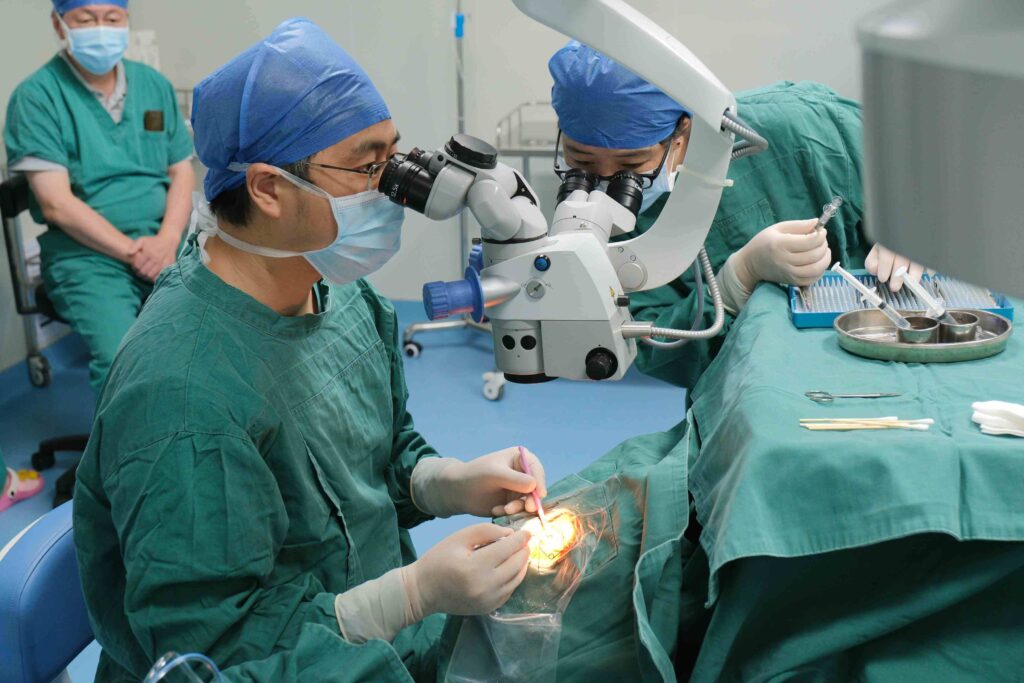Glaucoma is one of the leading causes of blindness worldwide, but early intervention and treatment can help preserve vision. For individuals diagnosed with this condition, choosing the right glaucoma surgeon is a critical step in ensuring the best possible outcome. But with so many medical professionals available, how do you find the one best suited to your needs?
This article will guide you through the key factors to consider when selecting a glaucoma surgeon and offer essential questions to ask during your search. By understanding what makes a great surgeon, you’ll be well-equipped to make an informed decision about your eye health.
Why Is It Important to Choose the Right Glaucoma Surgeon?
When it comes to treating glaucoma, the stakes are high. The right glaucoma surgeon can help slow the progression of the disease and, in many cases, prevent further vision loss. Modern surgical techniques have made significant advancements, but expertise and experience are still essential in ensuring the success of the procedure. Therefore, selecting the right specialist is crucial for maintaining your quality of life.
Many patients face the challenge of finding a qualified glaucoma surgeon who not only has the necessary medical skills but also provides comprehensive care and a personalized treatment plan. It’s important to understand the qualifications and qualities that make a surgeon truly stand out.
Key Factors to Consider When Choosing a Glaucoma Surgeon
1. Credentials and Specialization
The first and most important step in selecting a glaucoma surgeon is ensuring they have the appropriate credentials. Board certification in ophthalmology is a basic requirement, but you’ll want a surgeon who specializes in glaucoma surgery. Look for a professional who has completed additional fellowship training in glaucoma and has extensive experience in treating patients with this condition.
Specialization is vital because glaucoma surgery can be complex and requires a deep understanding of the disease, its progression, and the latest surgical techniques. Make sure your surgeon is up-to-date on the most effective treatments, including trabeculectomy, tube shunt surgery, and minimally invasive glaucoma surgeries (MIGS).
2. Experience and Track Record
When it comes to delicate surgeries like those for glaucoma, experience matters. Ask potential surgeons how many glaucoma surgeries they perform each year and how long they have been practicing in the field. A surgeon who regularly performs these procedures is more likely to have refined skills and can better handle complications, should they arise.
Surgeons with a strong track record of successful outcomes can provide you with peace of mind. It’s essential to inquire about their complication rates and how they manage postoperative care. If possible, look for reviews and testimonials from other glaucoma patients who have undergone surgery with that surgeon.
3. Advanced Technology and Techniques
The field of glaucoma surgery has advanced significantly over the years, with new technologies and surgical techniques offering better outcomes and quicker recovery times. When choosing a glaucoma surgeon, find out if they are using the latest technology and whether they offer a variety of surgical options based on your specific condition.
For example, minimally invasive glaucoma surgery (MIGS) is a newer technique that involves less tissue manipulation and faster recovery times. Surgeons who specialize in MIGS, along with traditional methods like trabeculectomy, can offer a wider range of options for treating your glaucoma.

4. Personalized Approach to Care
Glaucoma is a chronic disease that often requires ongoing monitoring and care. A good glaucoma surgeon will take a personalized approach to your treatment, tailoring their surgical plan based on your specific type of glaucoma, your age, and other health factors. They should work closely with you to create a comprehensive plan that includes both surgical and non-surgical treatments, as well as a plan for long-term care.
It’s also important to select a surgeon who makes you feel comfortable and takes the time to answer your questions. Trust and communication are key components of a successful surgeon-patient relationship, especially when dealing with a condition as serious as glaucoma.
SEE ALSO: Recognizing the Early Signs of Glaucoma
Questions to Ask Your Glaucoma Surgeon
Once you’ve narrowed down your list of potential glaucoma surgeons, the next step is to schedule consultations. During these appointments, you’ll want to ask specific questions to ensure you’re making the best choice. Here are some important questions to consider:
1. What Are Your Qualifications and Experience in Glaucoma Surgery?
Begin by confirming the surgeon’s credentials and asking about their experience with the particular type of glaucoma surgery you’re considering. Find out how long they have been practicing as a glaucoma surgeon and how many surgeries they have performed. A high volume of successful cases is a positive indicator of expertise.
2. Which Type of Glaucoma Surgery Do You Recommend for My Condition?
There are several types of glaucoma surgeries, including traditional methods and newer, minimally invasive procedures. Ask the surgeon which technique they recommend for your specific condition and why. They should be able to explain the risks, benefits, and expected outcomes of each option.

3. What Are the Potential Risks and Complications?
As with any surgery, there are risks involved with glaucoma procedures. Ask about the potential complications and how frequently they occur in their practice. A good glaucoma surgeon will be transparent about risks and will discuss how they manage any issues that may arise during or after the procedure.
4. How Long Will Recovery Take?
Understanding the recovery process is important when planning for surgery. Ask how long the recovery period will take and what to expect in terms of follow-up care. Some patients may need to take time off work or make adjustments to their daily routine, so it’s essential to have a clear understanding of the recovery timeline.
5. How Do You Handle Postoperative Care?
After the surgery, it’s crucial to have a follow-up care plan in place to monitor your eye health and ensure the surgery was successful. Ask the surgeon about their postoperative care protocol and how often you’ll need to return for checkups.
Red Flags to Watch Out For
While most glaucoma surgeons are highly qualified professionals, it’s still important to be cautious. Here are a few red flags that may indicate you should look elsewhere:
- Unwillingness to Answer Questions: A good surgeon will be patient and willing to address all your concerns. If they rush through your consultation or seem dismissive, it may be a sign to look for another professional.
- Lack of Experience with Advanced Techniques: If a surgeon is not familiar with or does not offer advanced surgical techniques, such as MIGS, they may not be up-to-date with the latest advancements in glaucoma care.
- Poor Reviews or Testimonials: Check for reviews and testimonials from other patients. Consistently poor feedback could be a warning sign that the surgeon’s practice might not be the best choice.
Conclusion: Choosing the Right Glaucoma Surgeon
Selecting the right glaucoma surgeon is one of the most important decisions you can make for your eye health. By focusing on key factors such as credentials, experience, technology, and personalized care, you can ensure that you receive the highest quality treatment. Don’t be afraid to ask questions, and trust your instincts when choosing a surgeon who will guide you through your glaucoma journey.
Ultimately, the best glaucoma surgeon will not only have the technical expertise but will also prioritize your comfort, trust, and long-term vision health.

